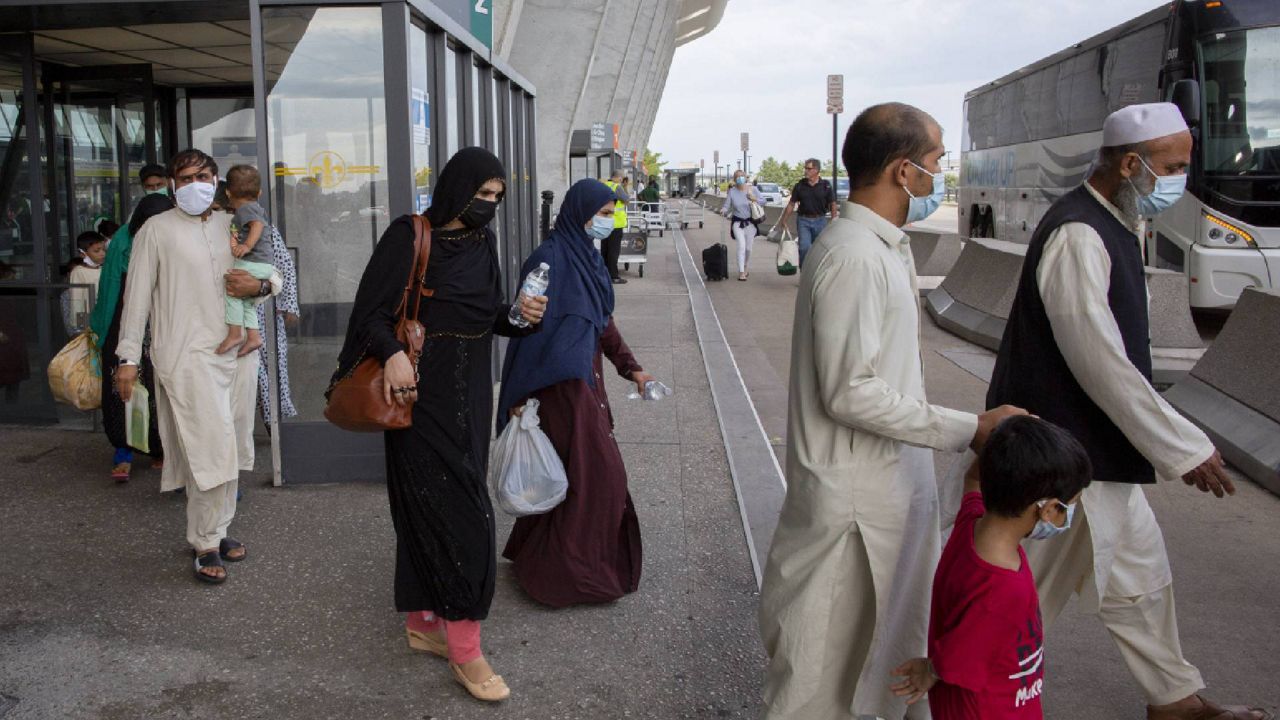The Biden administration on Wednesday announced it would protect Afghans in the United States from deportation for 18 months, granting them temporary protected status as thousands remain in legal limbo.
The Department of Homeland Security determined that Afghanistan was too unsafe to return home due to “ongoing armed conflict” that poses a “serious threat” to Afghan nationals if they were to return home, plus unstable conditions surrounding the economy, food insecurity and human rights.
About 76,000 Afghans have resettled around the United States since the evacuation out of Kabul. They were admitted for two years under humanitarian parole, which allows them to live and work but does not guarantee permanent status in the U.S.
“This TPS designation will help to protect Afghan nationals who have already been living in the United States from returning to unsafe conditions,” said DHS secretary Alejandro Mayorkas in a statement.
But TPS for Afghans does not guarantee protections long term, and advocates and veterans have continued to call for legislation to secure their lives here.
“While TPS for Afghanistan is an important protection tool, it does not address the legal limbo faced by tens of thousands of Afghans evacuated to the U.S. on humanitarian parole,” said Krish O’Mara-Vignarajah, president of the Lutheran Immigration and Refugee Service, in a statement.
“Our nation’s moral obligation to our Afghan allies and friends demands the stability that only a pathway to permanent residence can provide.”
Lawmakers have been drafting an Afghan adjustment act, legislation that could secure residency for the Afghans resettled here so far, including thousands who served alongside the U.S. military in combat and their families.
At least 36,000 are in legal limbo because they’re not eligible for a specific U.S. visa. But thousands more face an uncertain path ahead, since even Afghans here who qualify for a special visa due to their work for the U.S. are applying through a process that typically takes years to complete.
The new TPS designation is only for Afghans in the U.S. as of March 15.
DHS on Wednesday pointed to the ongoing violence in the country as one reason not to return Afghans home, including attacks on civilians by the Taliban and ISIS-K.
They also outlined current conditions in Afghanistan, including “collapsing public sector, a worsening economic crisis, drought, food and water insecurity, lack of access to healthcare, internal displacement, human rights abuses and repression by the Taliban, destruction of infrastructure, and increasing criminality.”



